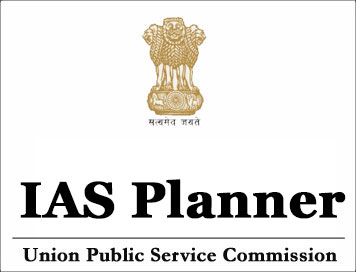NEW! The Gist (FREE) | E-BOOKS |
(IAS PLANNER) INDIAN POLICE SERVICE (IPS)
INDIAN POLICE SERVICE (IPS)
The Indian Police Service simply known as Indian Police or IPS, is one of the three All India Services of the Government of India. The IPS is not a law enforcement agency; rather it is a civil service in which officers are selected on the basis of professional merit as proven by competitive examinations, and to which all police officers are professionally identified. Indian Police officers are employed by the police departments of respective states of India. During the probation period an IPS has to undergo two year of the job training in the office of a Superintendent of Police of a district in the State you have been allocated .On completing your two year probation, you will be confirmed as a three star Assistant Superintendent of Police (A.S.P.). As Superintendent of Police, Senior Superintendent of Police of a District and as Deputy Inspector General of a Range you will be exclusively responsible for the prevention and detection of crime. In cities like Delhi, Mumbai and Bangalore, the law and order duties are the exclusive responsibility of the police force. In these cities the ASP, SP, and the DIG are called Assistant Commissioner of Police (ACPO), Deputy Commissioner of Police (DCP) and Commissioner of Police (CP). The Director General of Police (DG) is the head of the entire Police force of a state.
With the passage of time Indian Police Service's objectives were updated and redefined, the rules and functions of an Indian Police Service Officer are as follows:
-
To fulfill duties based on border responsibilities, in the areas of maintenance of public peace and order, crime prevention, investigation, and detection, collection of intelligence, VIP security, counter-terrorism, border policing, railway policing, tackling smuggling, drug trafficking, economic offences, corruption in public life, disaster management, enforcement of socio-economic legislation, bio-diversity and protection of environmental laws etc.
-
Leading and commanding the Indian Intelligence Agencies like Research and Analysis Wing (R&AW), Intelligence Bureau(IB), Central Bureau of Investigations (CBI), Crime Investigation Department (CID) etc., Indian Federal Law Enforcement Agencies, Civil and Armed Police Forces in all the states and union territories.
-
Leading and commanding the Para-Military Forces of India (PMF) which include the Central Police Organisations (CPO) and Central Paramilitary Forces (CPF) such as Border Security Force (BSF), Central Reserve Police Force (CRPF), Indo-Tibetan Border Police (ITBP), National Security Guard (NSG), Central Industrial Security Force (CISF), Vigilance Organisations, Indian Federal Law Enforcement Agencies.
-
Serve at head of the departments in policy making in the Ministries and Departments of Central and State Governments and public sector undertakings both at centre and states, Government of India.
-
To interact and coordinate closely with the members of other All India Services and Central Civil Services and also with the Indian Armed Forces primarily with the elite Indian Army.
-
Endeavour to inculcate in the police forces under their command such values and norms as would help them serve the people better.
Inculcate integrity of the highest order, sensitivity to aspirations of people in a fast-changing social and economic milieu, respect for human rights, broad liberal perspective of law and justice and high standard of professionalism.


